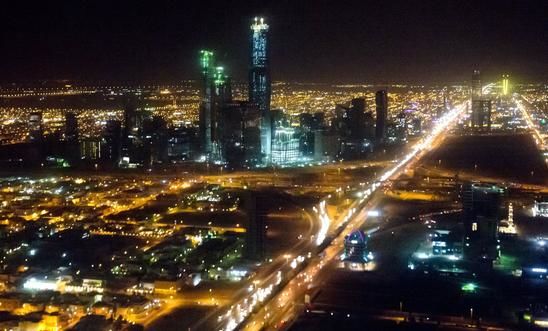
Press releases
Saudi Arabia carries out 100th execution of the year

‘Since July, the Saudi Arabian government has been on an execution spree with an average of five people put to death per week’ - Lynn Maalouf
The Saudi Arabian authorities have today carried out their 100th execution of the year, part of an “execution spree” that has seen 60 people executed in the country in the past three months alone, said Amnesty International.
Forty percent of this year’s executions were for drug-related offences - despite the use of the death penalty for such offences violating international human rights law. The country is already one of the most prolific executioners in the world, with more than 2,000 people executed between 1985 and 2016.
Numerous people are at imminent risk of execution in the country. At least 33 members of Saudi Arabia’s Shia Muslim community currently face the death penalty after being accused of activities deemed a risk to national security. Among them are Ali al-Nimr, Abdullah al-Zaher and Dawood al-Marhoon, who were arrested for offences allegedly committed when they were under 18 and who said that they were tortured into making “confessions”.
The families of 14 Shia men accused of protest-related crimes whose death sentence was upheld by the Supreme Court on 24 July, also live in fear of receiving news of the execution of their relatives. Similarly, last month the family of another young man - Abdulkareem al-Hawed - were informed by court officials that the Supreme Court had upheld his death sentence for offences related to his involvement in anti-government protests. Al-Hawaj was only 16 when he took part in the protests; he has exhausted all his appeals and can be executed as soon as the king ratifies his sentence.
Meanwhile, on 11 July, Yussuf Ali al-Mushaikhass and three other Shia men were executed in the country’s Eastern Province of Qatif for terrorism-related offences in connection with their participation in anti-government protests between 2011 and 2012. Al-Mushaikhass was convicted following a grossly unfair trial which hinged largely on a “confession” obtained through torture.
In another shocking case, on 13 September Said al-Sai’ari was executed in the city of Najran, in the southwest of Saudi Arabia. He was found guilty of the murder of another Saudi Arabian man by the same court that had concluded that there was not enough evidence to convict him.
Lynn Maalouf, Amnesty International Middle East Research Director, said:
“Since July, the Saudi Arabian government has been on an execution spree with an average of five people put to death per week.
“The Saudi authorities have been using the death penalty as a tool to crush dissent and rein in minorities with callous disregard for human life.
“If the Saudi authorities are truly intent on making reforms, they must immediately establish an official moratorium on executions as a first step towards abolishing the death penalty completely.”
Torture and unfair trials routine
Many people in Saudi Arabia sentenced to death are found guilty following seriously-flawed court proceedings that routinely fall far short of international fair trial standards. They are often convicted solely on the basis of “confessions” obtained under torture and other ill-treatment, denied legal representation in trials which are held in secret, and are not kept informed of the progress of the legal proceedings in their case.
Saudi Arabia uses the death penalty for a wide range of offences that are not accepted as the “most serious crimes” under international human rights law, which are limited to crimes involving intentional killings. Amnesty opposes the death penalty in all cases without exception regardless of the nature or circumstances of the crime; guilt, innocence or other characteristics of the individual; or the method used by the state to carry out the execution.